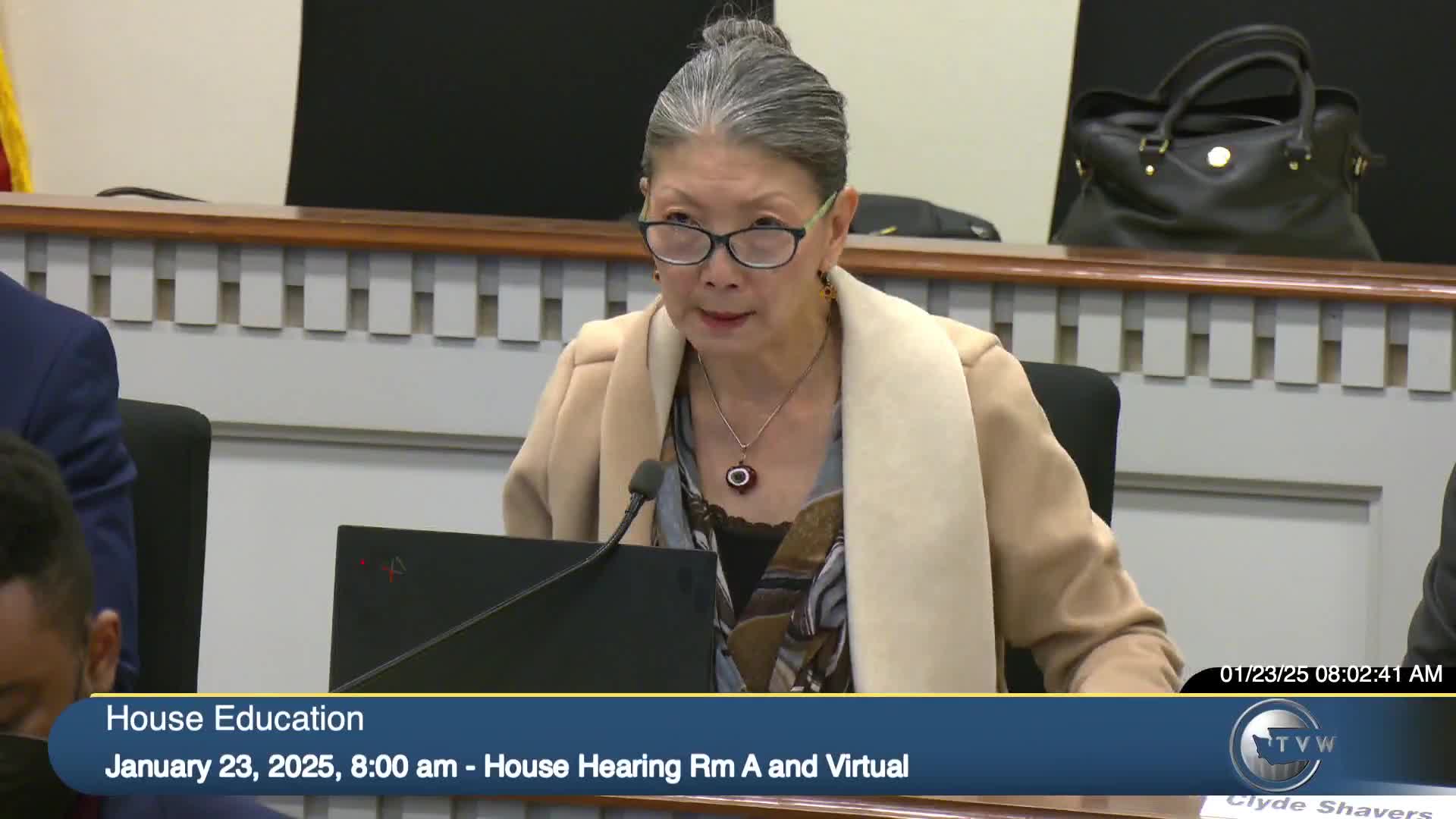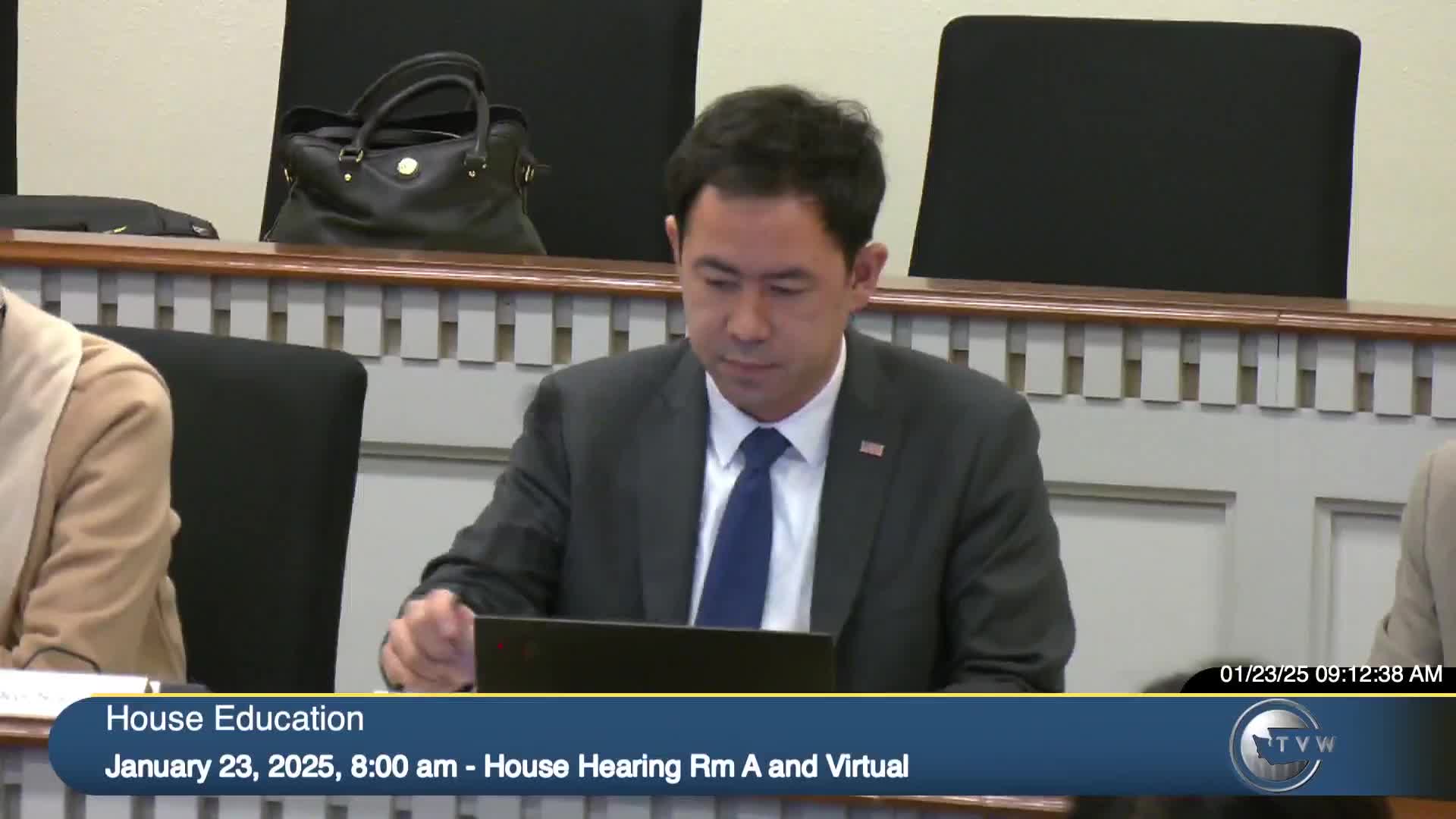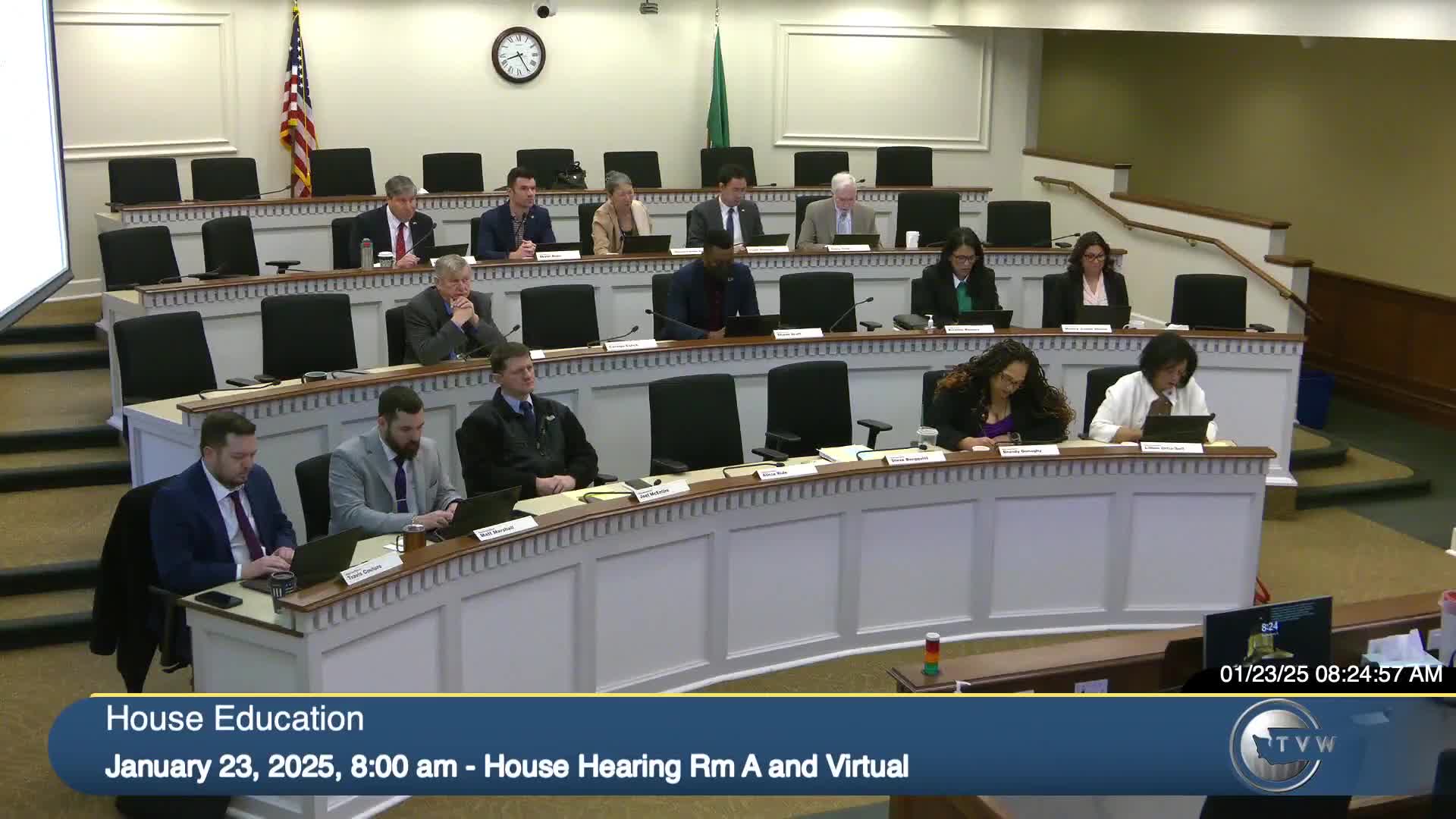Article not found
This article is no longer available. But don't worry—we've gathered other articles that discuss the same topic.

House panel hears bill to make financial education a statewide high school graduation requirement

House Education Committee holds wide‑ranging hearing on safe‑and‑supportive schools bill that would revise parental and student rights and enforcement

